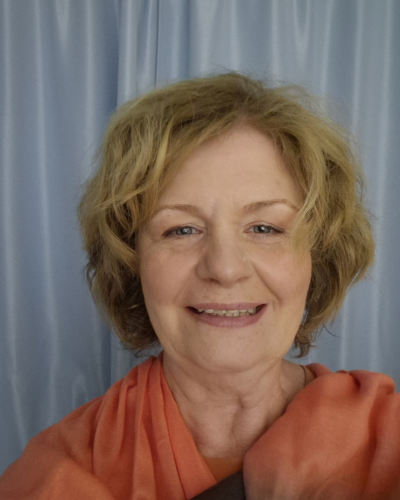Sharing your personal story is more than just a way to recount past events — it's a transformative tool for healing and reconnection, especially for those navigating the aftermath of trauma. For individuals grappling with PTSD or deep emotional challenges, the sense of disconnection from themselves, their families, and their communities can be overwhelming. The journey to reconnect with others often feels daunting, but it begins with the courageous act of opening up.
This blog delves into the profound impact of sharing personal stories. By expressing your experiences and emotions, you invite others into your world, fostering deeper, more empathetic connections.
The Impact of Disconnection: Understanding the Need for Reconnection
If you're dealing with PTSD or significant emotional trauma, you might feel a profound sense of disconnection from yourself, your loved ones, and your community. This isolation can make you feel like you're on the outside looking in, leading to a deep sense of alienation and a lack of belonging. Understanding this disconnection is crucial for recognising why reconnecting through storytelling is so vital for your healing journey.
When you experience trauma, it often leaves you feeling disconnected from your own emotions and identity. This internal disarray can make it hard for you to recognise who you are or what you want, creating a sense of estrangement from yourself. This fractured sense of self can disrupt your ability to connect with your own values and goals, leading to confusion and a feeling of being lost.
This disconnection also affects your relationships with family and friends. Trauma can lead to withdrawal, irritability, or mood swings, which can strain interactions and create barriers between you and your loved ones. This can result in misunderstandings and a sense of being unsupported, which deepens your feelings of loneliness and emotional distance.
Recognising these effects underscores the importance of reconnecting through storytelling. By sharing your personal experiences, you can start to rebuild your sense of self, repair strained relationships, and re-engage with your community.
Reconnecting with Yourself Through Storytelling
One of the most profound impacts of sharing your story is its ability to help you reconnect with your own sense of self. Trauma often fragments our sense of identity, leaving us feeling disconnected from who we once were or who we aspire to be.
By articulating your experiences, you engage in a reflective process that can help piece together these fragmented aspects of your identity. This storytelling serves as a means of making sense of your past, understanding the emotional landscape of your journey, and integrating these experiences into a coherent narrative.
When you share your story, you allow yourself to confront and process unresolved emotions. This act of reflection helps in acknowledging and accepting your past, which is crucial for personal healing. It’s like holding a mirror up to your past experiences and seeing them in a new light, which can lead to greater self-awareness and emotional growth. This renewed connection with yourself can bring clarity and peace, paving the way for a more grounded and empowered sense of identity.
How Memory Sharing Strengthens Personal Connections
Sharing personal stories significantly enhances connections with others, deepening relationships and fostering empathy. For veterans, recounting their experiences helps others gain a better understanding of their lives and challenges.
This increased understanding promotes compassion and support from family and friends. By providing insight into their past, veterans help loved ones appreciate their experiences and struggles, strengthening familial bonds.
Memory sharing also creates a sense of continuity. By documenting and sharing their past, veterans maintain a link between their history and the present generation. This continuity reinforces family heritage and provides younger generations with a meaningful connection to their roots.
Additionally, recounting personal stories can aid in healing strained relationships. For veterans, sharing their experiences can help resolve misunderstandings and build stronger, more supportive connections. It also fosters a sense of community, as veterans who share similar backgrounds can find solidarity and mutual understanding.
How Sharing Your Story Impacts Relationships and Bonds
Here’s a comprehensive look at how sharing your story can impact relationships and bonds.
1. Deepening Emotional Understanding:
When you share your personal story, you provide others with a window into your inner world. This transparency allows those around you to grasp the full scope of your experiences, emotions, and challenges, leading to a richer emotional connection.
Imagine a veteran who has struggled with PTSD but rarely discusses their experiences. By opening up about their military service and the challenges they’ve faced, family members begin to understand the daily impact of the veteran’s condition. This new understanding helps family members offer more empathetic support, whether it's through patience during tough moments or actively participating in discussions about coping strategies.
Start by having a heartfelt conversation with a trusted family member or friend. Choose a comfortable setting and take time to explain how your experiences have shaped your feelings and behaviour. Encourage questions and be open to discussing how they can better support you.
2. Building Trust and Openness:
Storytelling involves vulnerability, which naturally fosters trust and openness in relationships. When you share your experiences, you invite others into your personal world, laying the foundation for a deeper connection based on mutual trust.
Consider a situation where a veteran has had difficulty discussing their emotions due to fear of judgment. By sharing their story in a support group, they demonstrate trust and openness, which in turn encourages others to do the same. This reciprocal vulnerability strengthens the bonds within the group, leading to more meaningful and supportive interactions.
Participate in a support group or therapy session where you feel safe to share your experiences. Approach these settings with the intention of fostering mutual trust. By being open about your journey, you’ll encourage others to reciprocate, creating a supportive and empathetic environment.
3. Creating Shared Experiences and Empathy:
Sharing your story can highlight common experiences and foster empathy among those with similar challenges. This shared understanding helps build a supportive community and strengthens interpersonal connections.
A veteran who speaks about their combat experiences at a veterans' event may find that others have similar stories. This shared background creates a sense of camaraderie and mutual understanding, as veterans connect over common experiences and offer support and advice based on their own journeys.
Attend events or join forums where you can meet others with similar experiences. Share your story in these spaces and engage with others who relate to your experiences. This not only provides emotional support but also helps build a network of people who understand your journey.
4. Healing and Rebuilding Strained Relationships:
For those with strained relationships, sharing your story can be a powerful tool for healing. It provides context for past actions and emotional responses, which can help resolve conflicts and rebuild trust.
If a veteran has had conflicts with family members due to their emotional distance, sharing their experiences and the reasons behind their behavior can help family members understand the veteran’s perspective. This understanding can address unresolved issues and pave the way for reconciliation and stronger family bonds.
Initiate a conversation with family members or loved ones about your past experiences. Use this opportunity to explain how these experiences have influenced your behaviour and emotions. Encourage open dialogue to address misunderstandings and work towards rebuilding trust.
5. Strengthening Community Bonds:
Sharing your story contributes to a collective narrative, enhancing community connections and fostering a sense of belonging. By participating in communal storytelling, you help create a supportive network that values shared experiences and mutual support.
A veteran who creates a blog or social media presence to share their experiences with PTSD can attract others who are going through similar challenges. This online community provides a platform for exchanging support, advice, and encouragement, reinforcing a sense of belonging and collective strength.
Consider starting a blog, podcast, or social media page to share your experiences. Engage with your audience by responding to comments, participating in discussions, and fostering a sense of community. This not only helps you connect with others but also contributes to building a supportive network.
6. Enhancing Emotional Support Networks:
Sharing your story can expand your support network by connecting you with others who have similar experiences. This broader network provides additional emotional and practical support, enriching your personal and social life.
A veteran who shares their journey in a community forum may find new connections with others who offer advice, support, and empathy. This expanded network provides not only emotional support but also practical resources, such as information about coping strategies or access to veteran services.
Join forums, support groups, or social media communities related to your experiences. Share your story and engage with others to build and strengthen your support network. Utilize the connections you make to gain additional resources and support.
Conclusion
Sharing your personal story is an incredible way to enhance relationships and build stronger, more meaningful bonds. It deepens emotional understanding, fosters trust, creates shared experiences, heals strained relationships, and strengthens community ties. By engaging in storytelling, you not only enrich your connections with others but also contribute to a supportive and empathetic network that encourages both personal and collective growth. Opening up and sharing fosters a sense of belonging and mutual support, essential for navigating life’s challenges with resilience and grace.
Begin to strengthen your connections by sharing a meaningful part of your journey with someone close to you. Discover the transformative impact of authentic connection and start building deeper relationships today.
FAQs
1. What if I'm not ready to share my story? Can I still rebuild relationships?
Yes, you can rebuild relationships through open communication and small steps like listening and expressing emotions in other ways, such as journaling. Sharing your story is just one tool — take it at your own pace.
2. How can I protect my privacy when sharing my story publicly?
You can protect your privacy by using pseudonyms, withholding specific details, or sharing in closed groups. Set boundaries on what you share publicly versus privately to maintain control over your story.
3. Can sharing my story trigger negative emotions?
Yes, it can. Make sure you're in a safe space, and be ready to pause or seek support if emotions get overwhelming, for yourself or others listening.





